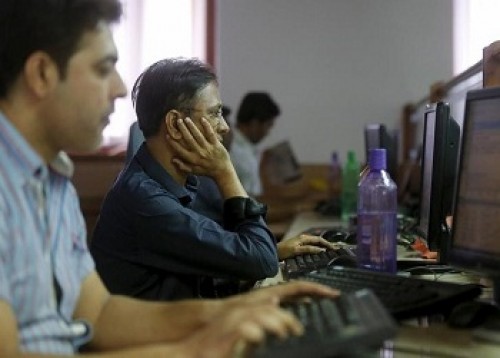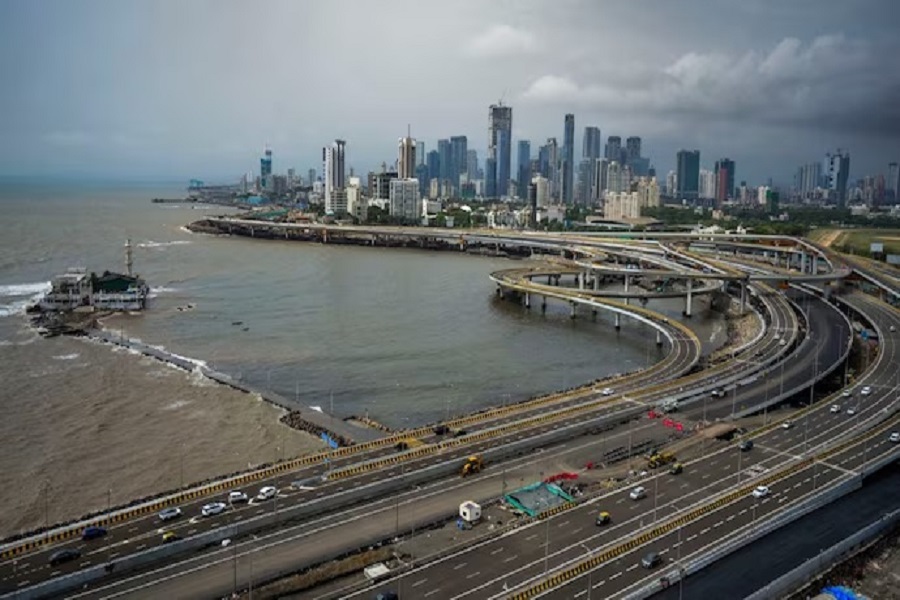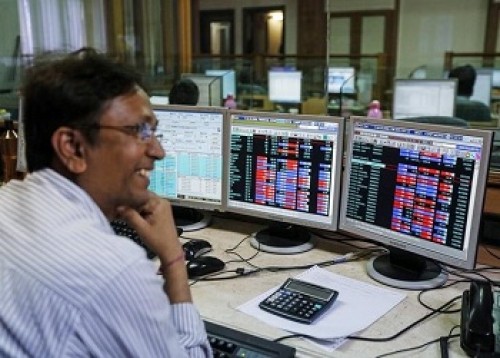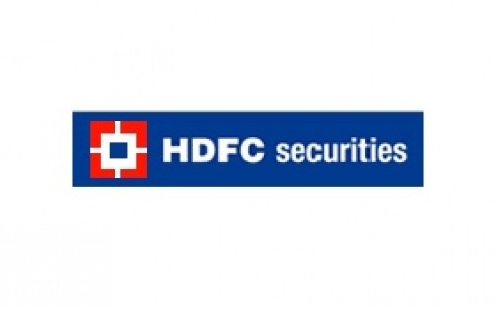Key gauges end last trading session of FY21 on tepid note

Follow us Now on Telegram ! Get daily 10 - 12 important updates on Business, Finance and Investment. Join our Telegram Channel
Indian equity benchmarks ended the last trading session of the financial year 2020-21 (FY21) on a tepid note with losses of over a percent each, as rising bond yields in US stoked fears of foreign outflows from emerging markets like India. The benchmark opened gap down and traded with negative bias throughout the session, amid concerns over rising Covid cases in the country, with the Centre warning that Covid-19 situation in the country is turning from bad to worse. The sentiments remained down-beat with a report by the United Nations Economic and Social Commission for Asia and the Pacific (UNESCAP) stated that India's economic output in 2021 is expected to remain below the 2019 level despite roll-out of the vaccine to deal with the menace of the coronavirus pandemic. Traders remained cautious with Moody's Analytics statement that India's inflation is at uncomfortably high level, which is an exception among Asian economies. It said higher fuel prices will keep upward pressure on retail inflation and keep the RBI from offering further rate cuts. Retail inflation rose to 5 per cent in February, from 4.1 per cent in January.
Markets extend losses in afternoon trading, as sentiments were fragile as the World Bank stating that India’s economy has bounced back amazingly from the COVID-19 pandemic and nationwide lockdown over the last one year, but it is not out of the woods yet. Market participants overlooked a private report stated that the gig economy can serve up to 90 million jobs in the non-farm sectors in India with a potential to add 1.25 percent to the GDP over the long term. It also said the gig economy, where workers get hired typically for short durations, can lead to transactions of over $250 billion over the long term. Meanwhile, the Finance Ministry said the Centre has released Rs 30,000 crore to the states as GST compensation on March 27, and about Rs 63,000 crore is pending for the current fiscal.
On the global front, Asian markets finished in red on Wednesday, while European markets were trading mostly in red, as traders weighed the impact of a surge in coronavirus cases around the world and waited for U.S. President Joe Biden's big announcement on infrastructure and other measures to support the economic recovery. However, investors were optimistic on a global economic recovery as data from China showed that the country's manufacturing activity expanded at the fastest pace in March, with a manufacturing PMI score of 51.9. That beat expectations for 51.0 and was up from 50.6 in February. Back home, on the sectoral front, sugar sector stocks were in focus with a report that the government has decided not to extend soft loans for at least a year to sugar mills for capacity expansion under the Sugar Development Fund (SDF), which offers financing at 2 percentage points below the prevailing bank rate. Stocks related to healthcare sector too were buzzing with a report by Niti Aayog stating that healthcare has become one of the largest sectors of the Indian economy and is expected to reach $372 billion in 2022. The report outlined a range of investment opportunities in the country's healthcare sector across hospitals, pharmaceuticals and medical devices.
Finally, the BSE Sensex fell 627.43 points or 1.25% to 49,509.15, while the CNX Nifty was down by 154.40 points or 1.04% to 14,690.70.
The BSE Sensex touched high and low of 50,050.32 and 49,442.50, respectively. There were 12 stocks advancing against 18 stocks declining on the index.
The broader indices ended in green; the BSE Mid cap index rose 0.07%, while Small cap index was up by 0.52%.
The top gaining sectoral indices on the BSE were Realty up by 1.89%, FMCG up by 1.06%, Consumer Durables up by 0.75%, Basic Materials up by 0.69%, Metal up by 0.41% while, Finance down by 1.73%, Bankex down by 1.43%, Power down by 1.35%, Telecom down by 1.29% and Energy down by 0.86% were the losing indices on BSE.
The top gainers on the Sensex were ITC up by 1.82%, Bajaj Finserv up by 1.80%, Hindustan Unilever up by 1.36%, SBI up by 0.90% and TCS up by 0.56%. On the flip side, HDFC down by 4.06%, HDFC Bank down by 3.86%, Power Grid down by 2.71%, Tech Mahindra down by 2.50% and ICICI Bank down by 1.71% were the top losers.
Meanwhile, Moody's Analytics has said India's inflation is at uncomfortably high level, which is an exception among Asian economies. It said higher fuel prices will keep upward pressure on retail inflation and keep the RBI from offering further rate cuts. Retail inflation rose to 5 per cent in February, from 4.1 per cent in January. The Reserve Bank mainly takes into account retail inflation while deciding on the monetary policy. Core inflation (which excludes food, fuel and light) was up 5.6 per cent in February, from 5.3 per cent in January, it said, adding India's inflation is uncomfortably high.
In its macro roundup, it said inflation is subdued in most of Asia, and expected to only gradually pick up over 2021 because of rising oil prices and economies starting to reopen. Brent crude has climbed 26 per cent this year at around $64 per barrel. It was around $30 per barrel in March 2020, when the COVID-19 crisis was near its peak.
It stated India and the Philippines are exceptions. In these economies, inflation is above comfort levels, adding to the list of challenges for policymakers. Stating that India's inflation is worrisome, it said volatile food prices and rising oil prices led retail inflation to exceed the upper band of 6 per cent several times in 2020, inhibiting the RBI's ability to keep accommodative monetary settings in place during the height of the pandemic.
The CNX Nifty traded in a range of 14,813.75 and 14,670.25. There were 21 stocks advancing against 29 stock declining on the index.
The top gainers on Nifty were Tata steel up by 2.30%, Grasim Industries up by 2.27%, UPL up by 1.91%, Bajaj Finserv up by 1.85% and ITC up by 1.51%. On the flip side, HDFC down by 3.90%, HDFC Bank down by 3.82%, Power Grid down by 2.60%, Tech Mahindra down by 2.19% and Coal India down by 2.14% were the top losers.
European markets were trading mostly in red; UK’s FTSE 100 decreased 15.26 points or 0.23% to 6,756.86 and France’s CAC decreased 9.54 points or 0.16% to 6,078.50, while Germany’s DAX increased 9.16 points or 0.06% to 15,017.77.
Asian markets finished in red on Wednesday due to risk aversion in the market amid fears about impact of spiking covid cases over the global economic recovery and on caution ahead to US President's big announcement on infrastructure and other measures to support the economic recovery. Upward trend of Bond yields, dollar and crude oil also triggered the downward trend. Shanghai slipped despite the positive manufacturing data of the country counting on rise of dollar with the impending corporate tax hikes by the US government after Biden's stimulus measures. China investors appear to have taken fright at another China tech IPO flopping in Hong Kong today, and as Ruili city in Yunnan province enters a Covid-19 lockdown.
Above views are of the author and not of the website kindly read disclaimer










Tag News

Weekly Market Analysis : Markets strengthened recovery and gained nearly 2% in the passing w...













